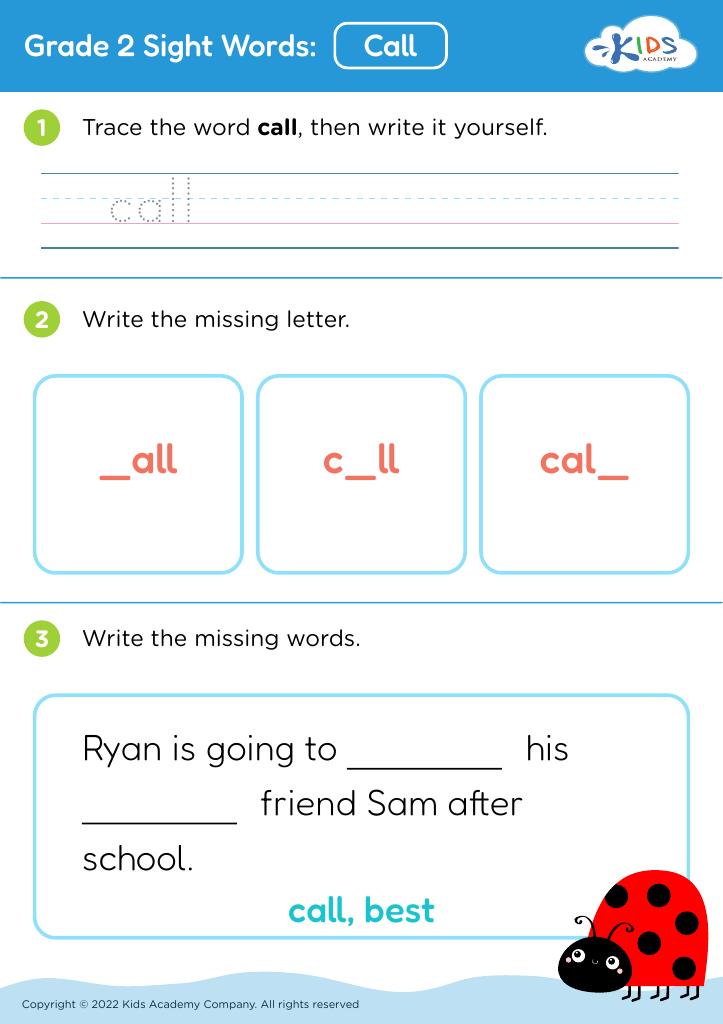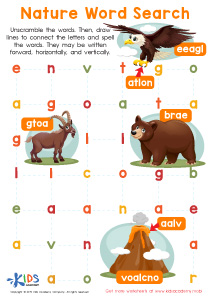Improving math skills Sight Words Worksheets for Ages 7-8
3 filtered results
-
From - To
Enhance your child’s math skills with our engaging "Improving Math Skills Sight Words Worksheets" designed specifically for ages 7-8. These worksheets blend essential sight word practice with foundational math concepts, creating an interactive learning experience that promotes literacy alongside numeracy. With fun exercises, children will recognize common sight words while solving math problems, reinforcing both reading and math capabilities. Ideal for homeschooling or classroom use, these resources foster skills such as addition, subtraction, and word recognition. Encourage a well-rounded educational approach that will build confidence and competence in your young learners. Download your worksheets today and make math mastery enjoyable!
Improving math skills and sight words for children aged 7-8 is essential for their academic success and emotional development. At this stage, children's cognitive abilities rapidly expand, making it a critical period for foundational learning. Strong math skills help them develop logical reasoning, problem-solving abilities, and critical thinking, which are skills necessary in everyday life. Understanding numbers and basic operations enhances their confidence in tackling more complex mathematical concepts as they advance in school.
Conversely, sight words are vital for developing reading fluency. Mastering them enables children to recognize commonly used words quickly, boosting their ability to understand and engage with new texts. This fluency is key as it allows kids to focus on comprehension rather than decoding words, fostering a love for reading that can last a lifetime.
When parents and teachers actively prioritize these skills, they create a supportive learning environment that encourages curiosity and resilience. By noticing and addressing gaps in these areas early on, they can help children develop a solid foundation in literacy and numeracy. This helps ensure that, as children progress in school, they not only meet benchmarks but feel empowered, capable, and ready to take on challenges in their educational journey.






.jpg)

.jpg)











